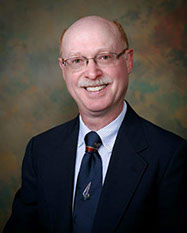During the course of my career, there have been numerous advances in both medical and surgical care. In fact, some of my own research has been used to change the management of some disease entities and has been used by others to make new medical devices. When I was a resident, I was advised by several of my attendings to never “make up” a new operation unless absolutely necessary. I have followed this advice but there were some extreme occasions where I had to think outside the box to save a a patient. These new ideas led to some basic research and then, as warranted, clinical studies.
During the early parts of my career, it never dawned on me to patent any new application and/or device; I was glad that something new that I had worked on could be used to help others. However, many medical schools, recognizing there may be economic reasons to patent new ideas, began to form groups to lay claim to intellectual property emanating from their employee’s research. It turns out that patent law is now a pretty big deal in medicine.
In law school, I took a course dealing with intellectual property. The topics covered included Trademark, Copyright, and Patent law. My undergraduate training in biomedical engineering made for a good foundation for this type of law as I was able to understand the science and math that were the underpinnings for Patent Law.
As for Copyright, I was surprised to learn that you could claim an ownership interest for anything you may have written and published in a “tangible medium of expression.” However, you should still register your work in case you ever need to bring a lawsuit for infringement since a registration within five years of the publication is considered prima facie evidence that the work is yours.
We are all familiar with the recent lawsuits emanating from the various “dot coms” suing each other for patent infringement. The financial stakes in this litigation can be astronomical. Previously, the location of the suits was critical as it could sway the outcome one way or another. A recent Supreme Court decision has changed this “forum” issue in hopes of leading to more uniformity in decision-making and cut back on the strategy of “forum shopping” by the interested parties.
In TC Heartland v. Kraft Foods Group Brands, the United States Supreme Court held, that as applied to domestic corporations, the residence of the corporation will be the State of incorporation, for the purposes of the patent venue statute. In this case, the petitioner, TC Heartland was a company that was organized under Indiana law. They made flavored fruit drink mixes. The respondent, Kraft Foods, was a competitor in the same market and this company was incorporated under Delaware law even though its primary place of business was in Illinois.
The issue in Heartland v. Kraft was whether the plaintiff (Kraft) could bring a patent infringement lawsuit against another corporation in any district where the defendant corporation is subject to the court’s personal jurisdiction with respect to the civil action. There is a general venue statute, 28 U.S.C. section 1391(c), which states that , “[e]xcept as otherwise provided by law” and “[f]or all venue purposes,” a corporation “shall be deemed to reside, if a defendant, in any judicial district in which such defendant is subject to the court’s personal jurisdiction with respect to the civil action in question.”
However, there is another law that deals specifically with patents. In 28 U.S.C. section 1400(b), “[a]ny civil action for patent infringement may be brought in the judicial district where the defendant resides, or where the defendant has committed acts of infringement and has a regular and established place of business.” In a previous Supreme Court ruling (see below), the Court held that for purposes of section 1400(b), a domestic corporation “resides” only its State of incorporation.
In this case, Kraft sued TC Heartland for patent infringement and brought the case to the District Court of Delaware even though TC Heartland was not registered to conduct business in Delaware and had no meaningful local presence in that state. However, it did ship the allegedly infringing products to that state. Kraft felt it would be better to have the suit heard in Delaware rather than the home state of TC Heartland. Of course, Heartland preferred to have the case transferred to the Southern District of Indiana where it felt it would have a more favorable court.
Heartland argued that it did not reside in Delaware under the first clause of section 1400(b), and it also argued that it did not have a regular place of business in Delaware under the second clause of section 1400(b). The District Court rejected these arguments holding that the definition of “resides” will be that found in section 1391(c). Under this definition, Delaware could excercise personal jurisdiction over TC Heartland. On appeal, the Federal Circuit agreed with the District Court.
The Supreme Court agreed to hear the case as to the venue issue and ended up reversing the holding of the Court of Appeals. In a previous decision, the Supreme Court held that the word “reside[nce] in section 1400(b) has a particular meaning as applied to domestic corporations: for patent purposes, it refers only to the State of incorporation.” (Fourco Glass Co. v. Transmirra Products Corp., 353 U.D. 222, 226) In a complex legal argument, the Court stated that subsequent laws did not change the venue statute as it applied to patent infringement cases.
Heartland wins on the venue issue and it looks like the case will now be heard in the courts of Indiana; unless a settlement is reached beforehand. This holding will probably lead to more patent infringement cases being heard in Delaware where many corporations “reside” and where the courts are more favorable to the companies incorporated there. It should lead to fewer cases being heard in courts which have a history of being more favorable to plaintiffs such as in the Eastern District of Texas.
One issue that has not yet been addressed is whether the courts will adapt the “established place of business” clause to include the internet which is being used by many companies to conduct business especially in retail sales. If the internet is deemed to be an “established place of business,” then we are likely to see a return to forum shopping by plaintiffs in patent infringement cases.
 by Darryl S. Weiman, M.D., J.D.
by Darryl S. Weiman, M.D., J.D.
Professor, Cardiothoracic Surgery, University of Tennessee Health Science Center and Chief of Surgery, VAMC Memphis, TN

